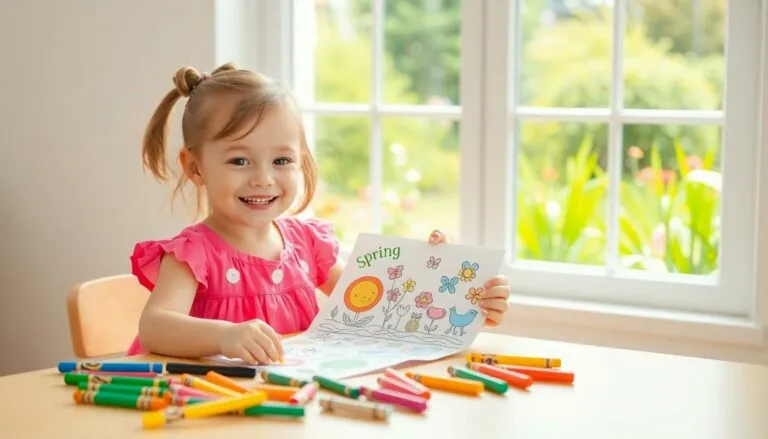Table of Contents
ToggleFostering a child is like adopting a puppy but with way more paperwork and fewer chew toys. While the idea of being a single foster parent might sound daunting, it’s not just a dream reserved for couples with matching pajamas. In fact, single individuals bring unique strengths to the table, like flexibility and a knack for navigating life’s chaos with style.
Imagine providing a loving home to a child who needs it most, all while mastering the art of cooking spaghetti with one hand and juggling Zoom calls with the other. This article dives into the ins and outs of being a single foster parent, debunking myths and highlighting the incredible impact one person can make. So grab that coffee and settle in—it’s time to explore how you can change a life, one hilarious moment at a time.
Understanding Foster Parenting
Foster parenting involves providing temporary care for children who cannot live with their biological families. This caregiving role plays a crucial part in the child welfare system. Both single individuals and couples can become foster parents, assisting children during challenging times.
Flexibility ranks high among the qualities necessary for successful foster parenting. A single parent often adapts to the needs of the child without the need for compromise. The ability to handle unpredictable situations also stands out as a vital strength. Single foster parents often excel in creating stable environments, which supports children in navigating their emotions.
Paperwork remains a key component of the fostering process. Licensing, background checks, and home studies are mandatory steps. Single foster parents manage these tasks, demonstrating commitment and responsibility. Teachers, social workers, and counselors are often pivotal in supporting the journey.
Myths often surround single foster parenting. Some believe that single individuals can’t provide adequate care, but evidence shows that single foster parents thrive. They frequently bring unique perspectives and deep compassion to the fostering experience.
Adopting an assertive approach proves beneficial. Many single foster parents share stories of resilience and growth, contributing positively to children’s lives. In addition, successful experiences serve to inspire others to consider fostering, regardless of their relationship status. Embracing the challenges of fostering while nurturing a child often creates transformative relationships, enriching the lives of both parties.
Can You Be a Single Foster Parent?
Yes, single individuals can become foster parents. Many thrive in this role, demonstrating love and support to children in need.
Legal Considerations
Understanding legal requirements stands as a crucial step for single foster parents. Licensing regulations vary by state, often requiring background checks and home studies. These processes ensure a safe environment for children. Moreover, individuals must provide documentation proving their income stability and ability to meet a child’s needs. It’s essential to consult local child welfare agencies for specific guidelines. Engaging with legal resources helps clarify potential liabilities and responsibilities in foster care situations. Therefore, awareness of legal considerations is vital for effective fostering.
Eligibility Requirements
Each state sets specific eligibility criteria for foster parents. Many agencies allow single individuals to foster if they meet age requirements, typically at least 21 years old. Background checks assess criminal histories, ensuring child safety. Additionally, applicants must demonstrate financial stability, proving they can adequately support a child. Emotional readiness also plays a role; individuals should possess the ability to provide a nurturing environment. Moreover, fostering agencies often value resilience and adaptability, two strengths single parents frequently exhibit. Meeting these eligibility requirements positions single parents as competent candidates for fostering.
Benefits of Being a Single Foster Parent
Single foster parents offer unique advantages that contribute positively to children’s lives. Flexibility stands out as a key benefit, allowing parents to adapt schedules to suit children’s varying needs. Stability becomes another significant factor, as many single foster parents create consistent routines for the children in their care.
Creating strong bonds often results from the one-on-one attention single foster parents provide. Children benefit from having someone dedicated solely to their emotional and developmental growth. Additionally, single foster parents frequently exemplify resilience, showing children how to overcome challenges while providing a nurturing environment.
Unique perspectives emerge from single foster parents due to their diverse life experiences. These experiences enrich children’s understanding of different backgrounds and situations, fostering empathy and open-mindedness. The capability to focus on individualized support enhances the child’s overall development.
Empowerment plays a crucial role as single foster parents take charge of their fostering journey. From navigating paperwork to engaging with support networks, they demonstrate commitment and responsibility. This proactive approach empowers both the foster parent and the child, reinforcing their bond.
Community connections often expand through single foster parenting. Parents frequently build networks with other foster families, sharing resources and support. Such relationships promote collaboration, enhancing the fostering experience for everyone involved.
Being a single foster parent ultimately allows for transformative relationships. These connections create lasting impacts, not just for the children, but also for the parents. Such experiences can forge a strong sense of purpose and fulfillment, making single foster parenting a rewarding endeavor.
Challenges Faced by Single Foster Parents
Single foster parents encounter distinct challenges in their journey. Balancing responsibilities poses one of the most significant hurdles.
Emotional Support
Emotional support remains crucial for single foster parents. They often manage feelings of isolation while navigating the complexities of fostering. Connecting with support groups and other foster parents can alleviate loneliness. Building a network provides opportunities for sharing experiences and advice. Some report feeling overwhelmed when addressing children’s trauma, highlighting the importance of self-care. Seeking professional counseling can also offer valuable insights and coping strategies. Uplifting relationships with friends and family serve as a vital buffer during tough times. Ultimately, nurturing one’s emotional health enables single foster parents to provide the stability and love children need.
Financial Considerations
Financial considerations play a vital role in successful single foster parenting. Expenses quickly accumulate from housing, education, and healthcare costs. Understanding available financial assistance from state programs can ease financial burdens. Many states provide monthly stipends to help cover child-related costs, benefiting single parents. Budgeting becomes essential to effectively manage resources. Exploring community resources, such as local charities or non-profits, adds another layer of support. Some single foster parents find it necessary to adjust their work schedules to prioritize child care, impacting income. Navigating these financial challenges requires careful planning but can lead to rewarding experiences.
Resources for Single Foster Parents
Single foster parents can access a variety of resources to support their fostering journey. State child welfare agencies provide essential information on licensing and requirements. Local foster care organizations often offer training programs tailored to single caregivers that address unique challenges.
Support groups create opportunities for networking with other single foster parents. These groups foster connections and share valuable advice on managing responsibilities. Online forums serve as an additional venue for exchanging experiences and coping strategies.
Financial assistance is available through government programs that help cover foster care-related expenses. Many states offer grants and subsidies specifically for foster parents, ensuring children receive necessary care. Nonprofit organizations also provide resources for budgeting and financial planning.
Training resources are essential for single foster parents who want to enhance their skills. Workshops focused on trauma-informed care address the specific needs of foster children. Additionally, courses on behavioral management can equip parents to handle various challenges effectively.
Mental health resources are crucial for the well-being of both the foster parent and the child. Local counselors often specialize in family and child therapy. These professionals provide guidance in navigating emotional challenges that may arise during the fostering process.
Access to educational resources, such as tutoring programs and after-school activities, can significantly benefit foster children. Many communities offer programs designed to integrate children into local schools and provide additional support.
Connecting with community services like food banks or housing assistance can ease some of the financial pressures associated with fostering. Building a supportive network within the community fosters resilience and enhances the overall experience for single foster parents and their children.
Conclusion
Single foster parenting is not only possible but can also be incredibly rewarding. Individuals who choose this path bring unique strengths and perspectives that can significantly benefit children in need. Their ability to adapt and create nurturing environments fosters emotional bonds that help children thrive.
While challenges exist, the support systems and resources available can make the journey manageable. With determination and a strong community network, single foster parents can provide the love and stability that many children desperately seek. Embracing this role can lead to transformative experiences that enrich the lives of both the foster parent and the child, proving that one person truly can make a difference.








